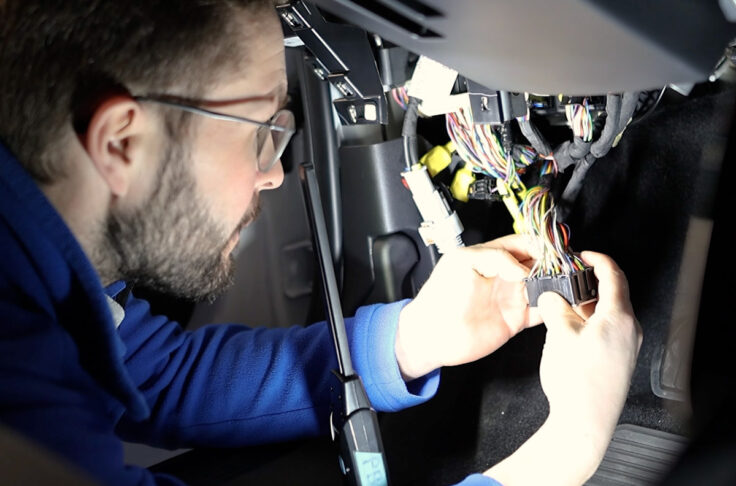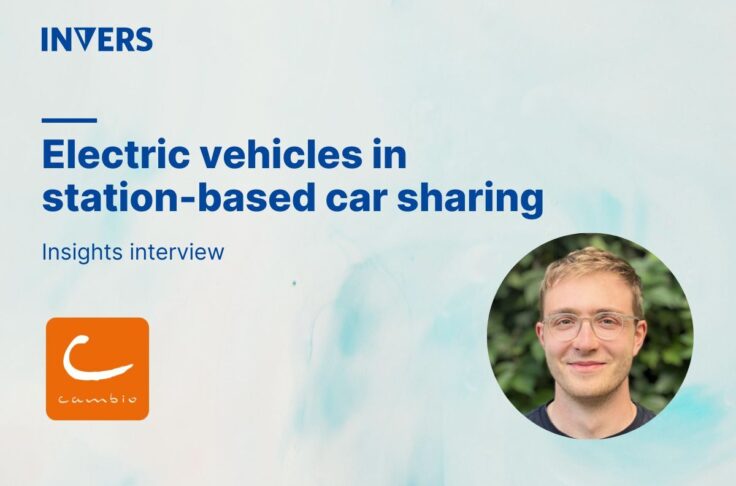5 Resolutions for Fleet Managers
Summary
Resolutions are good for everyone, including fleet managers. As the transportation and mobility space is changing, it is important to keep an open eye on ways to continuously improve.
New years resolutions are a great way to think about what you want to accomplish this year. Even though statistically many resolutions don’t get past the first month, that doesn’t mean creating them isn’t worthwhile. The thought process helps get you motivated for a successful year ahead.
Resolution 1: Set a Vision
Visions set long term plans, which is a bit different from goals. In the analogy of driving, a goal is where you want to go, and a vision is the direction you want to go. With goals, they are actions or to do items that have an end. In the driving example, if the goal is to “arrive at the park by 3pm”, the goal ends once you get to the park.
Visions, on the other hand, are continuous and guide future actions to come. Saying “I want to become a safer driver” is a vision that allows you to add purpose to any goal you set for yourself. Why do you want to arrive at the park by 3pm? Because any earlier you will be driving towards the sun, restricting your vision. Visions are therefore important to focus your activities towards improvements.
For fleet managers, a vision might be:
- Reduce operational inefficiencies
- Learn how to improve fleet management practices
- Understand team needs and how to meet them

Resolution 2: Embrace Being Economical
Doing more with less isn’t only for when times are tough. Being economical is a good practice to get into for both your job and your organization. What is the benefit of spending more when you don’t need to? Budgets are often projected for the year based on historical spend. By being active in knowing what the costs are as they occur, fleet managers may uncover unnecessary spending. When you are able to find ways to run your fleet at a reduced cost, you help build a reserve for unexpected expenses while showcasing your fleet’s ability to operate at efficient levels.
For fleet managers, actions to take might be:
- Re-evaluating need for current fleet size, rightsize if needed
- Negotiating contract with vendors to ensure you are getting best value
- Identifying grants or subsidies relevant to your operations
Resolution 3: Block off Time for Yourself
However successful you may be in your role, there is always room for improvement. Making time to read industry magazines or blogs help improve your knowledge of the world you are working in, and may also inspire new ideas. Working on side projects could help build a skillset that is not directly related to your role but could benefit other aspects of the organization. The brain benefits from constant learning, so do yourself a favour and find new opportunities to learn. Your job needs to come first, but it is important to carve out time for your personal development as well.
For fleet managers, new ways to learn might be:
- Listening to podcasts
- Following industry thought leaders
- Finding a project you are interested in
Resolution 4: Don’t Be Afraid of Change
Change can be scary; that’s a common sentiment. However, progress doesn’t come without change, and it is usually better to improve than to stay with the status quo. The fleet industry is experiencing disruptions to work flows as technology improves, and that isn’t about to end anytime soon. Instead of resisting the change, embrace it. Choose areas that could benefit from improvements, and work changes into your organization in increments. As part of the implementation process, work with your team to understand how they view the change, and be transparent with your plans. Like you probably originally felt, there may be resistance. With the right steps in place, your organization will be able to stay ahead of the curve and pave the way for future changes as well.
For fleet managers, types of change to embrace might be:
- Sharing a pool of vehicles among the entire organization
- Implementing green initiatives above and beyond what is mandated
- Being the first to try out a new technology
Resolution 5: Collaborate with Others
Competition is healthy unless it’s unnecessary. In the corporate fleet world, there is no need to compete with other counties or states on performance or awards. Instead, fleets can learn from each other. Collaborating ideas or even consulting with other organizations can only benefit your fleet, not harm it. This can be done within industry conferences or associations – forums are a great way to share any issue and receive community support. Having a network of contacts in different organizations can prove useful when you need a subject matter expert. Regardless of the method, bouncing your thoughts off others can reveal new perspectives you would not have thought of on your own.
For fleet managers, opportunities to collaborate might be:
- Deciding on how to reach mandate requirements
- Choosing the right vendor for your needs
- Understanding the benefits of new tools and technology
The above resolutions are also great topics to talk with other fleet managers about. These resolutions are no easy feat. However, they are important to guide your approach to your role as a fleet manager – to be dynamic and always look for how to improve fleet operations. Your role isn’t just a day-to-day job, it is also an opportunity for you to grow your skillset and impact within your organization.


